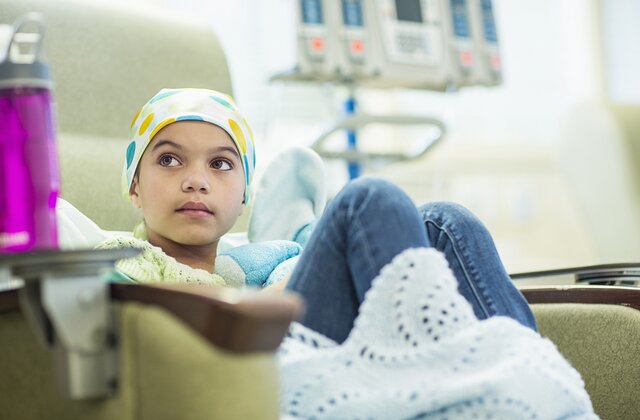
Childhood blood cancer, though rare, can be a devastating diagnosis for both children and their families. Early detection is crucial for better treatment outcomes. In this article, we will discuss the signs and symptoms of blood cancer in children and the importance of recognizing these red flags. We will also gain insights from Dr. Vikas Dua, a distinguished child blood cancer specialist in Delhi, to help parents understand the critical aspects of this condition.
Understanding Childhood Blood Cancer:
Childhood blood cancer primarily includes two main types: leukemia and lymphoma. Leukemia affects the blood and bone marrow, while lymphoma primarily impacts the lymphatic system. Recognizing the signs and symptoms of these cancers is essential for early diagnosis and timely treatment.
Signs and Symptoms:
- Unexplained Fatigue: Children with blood cancer may experience extreme tiredness and fatigue that doesn’t improve with rest.
- Frequent Infections: Recurring infections, such as colds, flu, and ear infections, can be a sign of a weakened immune system.
- Unexplained Bruising or Bleeding: Easy bruising, prolonged bleeding from minor cuts, or frequent nosebleeds can indicate a problem with blood clotting.
- Bone Pain: Children may complain of bone or joint pain, which is often attributed to the growing pains. However, persistent or severe pain should be a cause for concern.
- Paleness: A noticeably paler complexion can be an indicator of anemia, a common symptom of blood cancer.
- Swollen Lymph Nodes: Enlarged lymph nodes in the neck, under the arms, or in the groin may be a sign of lymphoma.
- Enlarged Spleen or Liver: An enlarged spleen or liver may cause a feeling of fullness or discomfort in the abdomen.
- Unexplained Weight Loss: Significant and unexplained weight loss can be a concerning symptom of blood cancer.
- Night Sweats: Persistent drenching night sweats unrelated to room temperature can be a symptom of lymphoma.
- Fever: Unexplained, prolonged fever can be a sign of an underlying condition like leukemia.
- Loss of Appetite: A child’s loss of appetite, especially when accompanied by other symptoms, should not be ignored.
- Pallor: A pale or “washed out” appearance can be an indicator of anemia and should be evaluated by a healthcare professional.
The Role of a Child Blood Cancer Specialist:
Early diagnosis and prompt treatment are critical for childhood blood cancer. Dr. Vikas Dua, a renowned child blood cancer specialist in Delhi, emphasizes the significance of consulting a specialist when any of these symptoms are observed. “Childhood blood cancer requires a specialized approach and a multidisciplinary team to ensure the best care and outcomes for young patients,” he notes.
Diagnosing Childhood Blood Cancer:
Diagnosing blood cancer in children typically involves several diagnostic tests, such as blood tests, bone marrow aspiration, and imaging studies. Dr. Vikas Dua underscores that early and accurate diagnosis is essential for determining the type of blood cancer and the most appropriate treatment plan.
Treatment Options:
The treatment for childhood blood cancer varies based on the type, stage, and specific characteristics of the disease. Common treatment options include:
- Chemotherapy: The use of powerful medications to kill cancer cells.
- Radiation Therapy: Targeted radiation to destroy cancer cells.
- Stem Cell Transplant: Replacing damaged bone marrow with healthy stem cells.
- Immunotherapy: Boosting the body’s immune system to fight cancer.
- Targeted Therapies: Medications that specifically target cancer cells.
Support for Families:
A childhood blood cancer diagnosis is challenging not only for the child but also for the entire family. Parents play a crucial role in providing emotional support and ensuring the child adheres to the treatment plan. Support groups, counseling, and mental health services can help families navigate the emotional challenges that come with a cancer diagnosis.
Conclusion:
Recognizing the signs and symptoms of childhood blood cancer is a crucial step towards early diagnosis and effective treatment. Parents and caregivers should remain vigilant and seek medical attention if any of these red flags are observed. Consultation with a specialist, such as Dr. Vikas Dua, a child blood cancer specialist in Delhi, is essential for accurate diagnosis and tailored treatment plans. With early intervention and comprehensive care, childhood blood cancer can be managed, and children can look forward to a healthier future.

